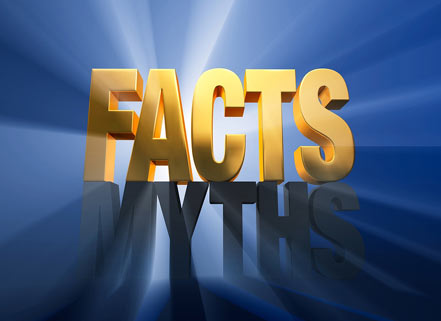
The special counsel overseeing the investigation into Russian interference in the 2016 elections widened the scope of the probe - including whether President Donald Trump obstructed justice when firing James Comey as FBI director. Now, with every new development, Trump's critics are quick to call for his impeachment and label his actions as obstruction of justice.
Yet this is not a simple process, and many times, such reactions are exaggerated. It's still early in the investigation, with no indication yet whether any findings could lead to potential charges.
It's important to consider the full context and nuances in the face of heated rhetoric on this topic. We explored some key questions below.
![]()
What is 'obstruction of justice'?
This is one of those provocative but murky terms that are used frequently. It generally refers to actions taken to impede an official investigation. Obstruction of justice is a felony offense.
There are several federal statutes that include relevant language that could qualify someone's actions as obstruction of justice.
Under 18 U.S.C. 1505, a person has committed a federal offense when they "corruptly, or by threats or force, or by any threatening letter or communication influences, obstructs, or impedes or endeavors to influence, obstruct, or impede the due and proper administration of the law under which any pending proceeding is being had before any department or agency of the United States, or the due and proper exercise of the power of inquiry under which any inquiry or investigation in being had by either House, or any committee of either House or any joint committee of the Congress."
The key word here is "corruptly."
Lawfare blog notes that under federal statutes, "corruptly" is defined as "acting with an improper purpose, personally or by influencing another, including making a false or misleading statement, or withholding, concealing, altering, or destroying a document or other information."
This means that in obstruction of justice cases, it's not enough evidence to show someone intended to impede an investigation. There needs to be evidence that the person impeded corruptly - that they knew it was wrong but did it anyway, with corrupt intent. It's about the mental state of the person.
That's a high bar, and corrupt intent is not a black-and-white matter. In the absence of conclusive findings by the special counsel, there are many unanswered questions about whether what we know so far could build an obstruction of justice case. Based on the facts available so far publicly, there is not yet a case for obstruction of justice, said Kenneth Starr, the special counsel who investigated President Bill Clinton, in a recent CNN interview.
"Obstruction of justice is really a very hard crime to make out. It's not just, you want the investigation to go away, you suggest the investigation goes away," Starr said. "You've got to take really affirmative action. . . . And you know what, that's a good thing for all of us. Crime should be difficult to prove."
What is executive privilege?
In the 1974 case United States v. Nixon, the Supreme Court recognized that the president has constitutional authority to exercise executive privilege, which protects compelled disclosure to other branches of government.
A recent example: President Barack Obama invoked executive privilege when blocking Attorney General Eric Holder from releasing documents in Operation "Fast and Furious." As a result, a House panel voted in 2012 to hold Holder in contempt, and a federal judge rejected Obama's privilege.
Executive privilege applies narrowly, and it can only be used in certain circumstances, such as protecting confidential or sensitive communications or matters of national security. Basically, the president can have private, frank conversations with his advisers to carry out his duty as president in an informed way. This privilege doesn't apply to matters of political expediency.
This continues to come up in news coverage, as former and current federal officials are being called to testify in public hearings about matters they discussed with the president. For example, before Comey's June testimony before the Senate Intelligence Committee, there were questions as to whether Trump could invoke executive privilege to block Comey from testifying. Of course, at the time, Comey was a private citizen after being fired from his job by Trump, so Comey would have been free to testify even if Trump did assert this authority.
Readers asked us to fact-check whether Attorney General Jeff Sessions correctly referenced executive privilege when refusing to answer certain questions about Comey and the Russia investigation during a Senate Intelligence Committee hearing in June. The Justice Department cited Reagan-era memos about executive branch officials declining to answer questions at a congressional hearing about confidential conversations with the president.
But as The Washington Post noted, legal experts were split on whether Sessions correctly followed protocol by refusing to answer questions in case Trump wanted to invoke privilege.
How does impeachment work?
Trump's critics are quick to jump to calls for impeachment, but it's a complex and highly political process.
The Constitution lays the grounds for impeachment as "treason, bribery, or other high crimes and misdemeanors," but "high crimes and misdemeanors" is not clearly defined. Based on the legal and historical interpretation of the word "high," the word can be used to describe the position of the person holding high public office (i.e., president, vice president, federal judges) - not the severity of the crime or misdemeanor.
The independent investigator or special counsel would complete the investigation and report the findings. Then Congress would decide how to move forward, and decide whether the findings amount to "high crimes and misdemeanors."
Impeachment starts in the House with a majority vote. Think of the House as the body bringing charges or an indictment. The Senate has power to try the impeachment and essentially convict or acquit the individual of the charges with a supermajority.
"It is not the role of this Office [of Independent Counsel] to determine whether the President's actions warrant impeachment by the House and removal by the Senate; those judgments are, of course, constitutionally entrusted to the legislative branch," according to the Starr report of the Clinton investigation.
The Starr report found 11 possible grounds for Clinton's impeachment, all having to do with Clinton's false statements under oath about his sexual activities with Monica Lewinsky. Clinton was accused of repeatedly lying under oath to a grand jury, in his civil deposition, and even to his own lawyer, investigators found. Clinton abused his constitutional authority by lying to the public and Congress throughout 1998, and tried to obstruct justice, investigators found.
In December 1998, the House impeached Clinton, accusing Clinton of perjury and of obstruction of justice. Then, in February 1999, the Senate acquitted Clinton of both charges. Five Republicans and all 45 Democrats supported full acquittal.
Andrew Johnson was the only other president who was impeached amid his political fights with the Republican-controlled Congress over his Reconstruction-era policies. The House brought 11 impeachment charges against Johnson in 1868, alleging him of high crimes and conspiracies, but was narrowly acquitted by Senate.
President Richard M. Nixon was threatened with impeachment, but resigned during impeachment investigations.
Comment by clicking here.
An award-winning journalism career spanning nearly three decades, Glenn Kessler has covered foreign policy, economic policy, the White House, Congress, politics, airline safety and Wall Street. He was The Washington Post's chief State Department reporter for nine years, traveling around the world with three different Secretaries of State. Before that, he covered tax and budget policy for The Washington Post and also served as the newspaper's national business editor. Kessler has long specialized in digging beyond the conventional wisdom, such as when he earned a "laurel" from the Columbia Journalism Review


 Contact The Editor
Contact The Editor
 Articles By This Author
Articles By This Author